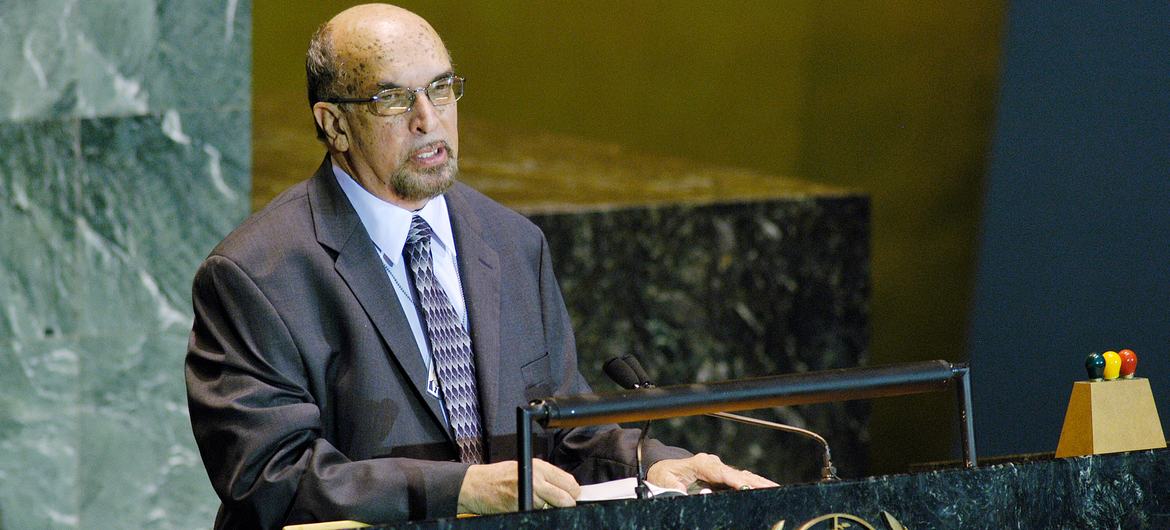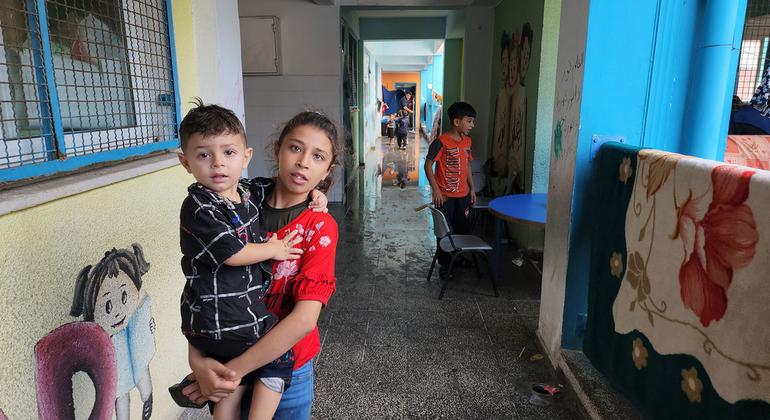Addressing the Assembly’s annual debate on the Question of Palestine, Dennis Francis urged UN Member States to find common ground, engage with each other in good faith, and increase collective resolve to end the crisis.
“The longer the fear, distrust, appetite for revenge, hatred, and anxiety fester and deepen further – the more lethal the psychological chasm grows and the darker the shadow it will cast over generations to come,” he said.
Mr. Francis highlighted that sustained security and stability in the Middle East “cannot and will not” be achieved without a just, lasting, and comprehensive peace.
The only viable way to break the endless cycle of conflict, violence and mutual pain and suffering, he said, is through a two-State solution – in line with General Assembly resolutions.
Humanitarian ceasefire
President Francis welcomed the temporary ceasefire in Gaza, describing it as a “breakthrough for hope”. However, “it is not really enough”, he added.
“I reiterate my call for a longer-term humanitarian ceasefire so food, water and desperately needed medical aid can reach all those in need in the Gaza Strip and all affected areas,” he said, urging humane treatment and immediate, unconditional release of all hostages.
He also stressed that humanitarian aid corridors must remain open and secure, and more simply must be allowed to enter Gaza and affected areas.
Protect civilians
Mr. Francis denounced the indiscriminate damage caused to schools run by the UN agency assisting Palestine refugees (UNRWA) that are sheltering more than one million internally displaced persons.
“It is unthinkable that in the prosecution of this war, contrary to the rules of war, schools are no longer inviolable, nor are they used exclusively for their intended purpose – education,” he said, stressing that protection of civilians must remain paramount.
Rebuild trust
In conclusion, he urged nations to “find our way back to rebuild trust.”
Trust in the principles of equality enshrined in the Universal Declaration of Human Rights, the UN Charter and international law, he emphasized.
“Trust that parents and relatives on both sides of this conflict – and throughout the Middle East – will be able to put their children to bed each night in safety,” he said.
Tribute to former Assembly President
At the start of the meeting, the General Assembly observed a minute of silence for Samuel Rudolph Insanally, the President of the 48th session of General Assembly (1993-94).
A veteran diplomat from Guyana, Mr. Insanally had also served as the country’s Ambassador and Permanent Representative to the UN in the 1980s, and from 2001-2008 as the Minister of Foreign Affairs. He died on Sunday, aged 87.

Samuel R. Insanally addressing the General Assembly.
Guterres calls again for two-State solution
In a statement released ahead of Wednesday’s International Day of Solidarity with the Palestinian People, UN Secretary-General António Guterres called once again for a long-term humanitarian ceasefire, unrestricted access for lifesaving aid, the release of all hostages, the protection of civilians and an end to violations of international humanitarian law.
In his message, the UN chief underscored the need to move in a “determined, irreversible way” towards a two-State solution. This must be based on UN resolutions and international law, he said, with Israel and Palestine living side-by-side in peace and security with Jerusalem as the capital of both States.
“The United Nations will not waver in its commitment to the Palestinian people. Today and every day, let us stand in solidarity with the aspirations of the Palestinian people to achieve their inalienable rights and build a future of peace, justice, security and dignity for all,” he said.
In his message, the UN chief also expressed condolences to all the families mourning the loss of loved ones in the region.
“I have been clear in my condemnation of the terror attacks by Hamas on 7 October. But I have also been clear that they cannot justify the collective punishment of the Palestinian people,” he said.
He also paid tribute to UNRWA and its personnel, calling on the international community to support the agency.
The International Day
The International Day is observed on or around 29 November each year, in accordance with mandates contained in Assembly resolutions 32/40 B, 34/65 D and subsequent resolutions adopted by the General Assembly under its agenda item “Question of Palestine.”
It was on 29 November 1947 that the General Assembly adopted resolution 181 (II), which came to be known as the Partition Resolution.
That resolution provided for the establishment in Palestine of a “Jewish State” and an “Arab State”, with Jerusalem as a “separate entity” placed under special international legal and political control.



